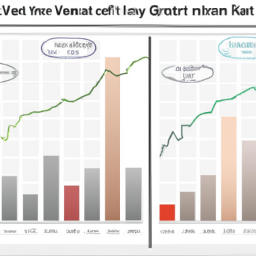Investing money is an important part of financial planning. Whether you’re looking to build wealth or just ensure your money is working for you, understanding the different types of investments and how they work can help you create a portfolio that meets your goals. Mutual funds are investments that let you buy a collection of securities all at once. Mutual funds might invest in stocks, bonds, money market instruments, real estate, commodities, options, and/or other investments. They come in many different varieties and are managed by professionals.
Exchange-traded funds (ETFs) are similar to Mutual funds, but they’re traded on a stock exchange. ETFs track the performance of an index, such as the S&P 500, and offer cost-effective diversification. ETFs are less expensive than Mutual funds, and they can be bought and sold on the stock market just like stocks.
In addition to Mutual funds and ETFs, there are several other types of investments that you can include in your portfolio. These include stocks, bonds, commodities, real estate, and alternative investments. stocks give you the chance to own a piece of a publicly traded company and get a share of any dividends or profits it generates. bonds are debt instruments that allow you to lend money to a company or government in exchange for a fixed rate of return.
commodities are physical goods that are used as inputs for the production of other goods or services. Examples of commodities include oil, gas, gold, and wheat. real estate investments involve buying and selling physical property, such as residential or commercial buildings. Finally, alternative investments are investments that don’t fit into the traditional categories of stocks, bonds, and commodities. Examples of alternative investments include hedge funds, private equity funds, and venture capital funds.
When deciding which types of investments to include in your portfolio, it’s important to consider your risk tolerance and time horizon. risk tolerance is your willingness to take risk with your money in order to potentially get higher returns. The longer your time horizon is (i.e. the longer you plan to invest), the higher your risk tolerance may be.
It’s also important to understand the different types of investments and how each can affect your portfolio. Knowing how to invest money can help you create a diversified portfolio that’s tailored to your goals and risk tolerance. For example, if you’re looking for income, you may want to invest in bonds and dividend-paying stocks. If you’re looking for long-term growth, you may want to invest in stocks and Mutual funds.
When it comes to selecting investments, it’s important to understand the different types of Mutual funds and ETFs that are available. Index funds and index ETFs are popular choices for invest who want to track the performance of a particular market index. These funds are typically passively managed, meaning the investments are not selected by a human fund manager. Instead, they often aim to track a specific index, such as the S&P 500.
Actively managed funds are another option. These funds are managed by professional money managers who select and manage investments in order to meet the fund’s stated goals. Actively managed funds typically have higher fees than Index funds, but they can potentially outperform the market. It’s important to research any mutual fund or ETF before Investing to make sure it’s a good fit for your portfolio.
In addition to Mutual funds and ETFs, you can also invest directly in stocks, bonds, and other investments. Investing in individual stocks and bonds can give you more control over your investments, but it can also be more risk. If you’re just starting out, it’s best to start with Mutual funds and ETFs before venturing into individual stocks and bonds.
When Investing, it’s important to remember that the goal of Investing is to make money. Money is not a client of any invest adviser featured on this page. The information provided on this page is for educational purposes only, and is not intended as invest advice. You should only invest money you don’t need for your immediate needs.
Finally, it’s important to stay informed about the markets and stay tuned to what the experts are saying. Welcome to NerdWallet's Smart Money podcast, where we answer your real-world money questions. This week's episode is all about Investing in stocks and bonds.
Investing can be a complicated process, but it doesn’t have to be. With a little bit of research and knowledge, you can make informed decisions about how to invest money and create a portfolio that meets your goals.
For example, if you’re looking for income, you may want to invest in corporate bonds. Corporate bonds offer steady returns over a 12 to 36 month period. You can also invest in digital gold, which is a form of gold that is stored in a digital wallet and can be traded without the need for physical gold.
Sam, a maths graduate and invest banker, started Investing in 2019. He has used his experience to build a portfolio of stocks and bonds, as well as digital gold. He is constantly researching the markets and staying informed about the latest invest trends.
